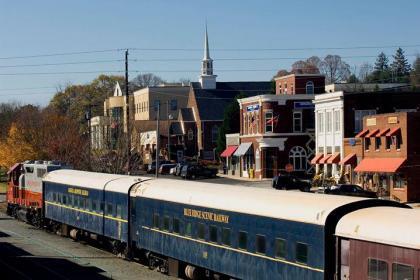
For writers who grew up or lived in small towns, writing about them comes easily because that life is so familiar to them. Unlike large cities with many service providers, small towns demand more of local residents, who need to become handy at doing things because the service is either not nearby or not easily available. Small towns also are fascinating settings for other reasons.
Readers Can Picture the Setting
A ready-made setting springs up in readers’ minds when a small town is depicted as the background of the story. Their imaginations can work overtime with a few hints to fuel the pictures they have created in their minds.
Appear Quiet, Slow Paced, and Intimate
The pace of small towns does not appear to be stressed and busy like “big city” life, although work life is often hard and demanding. Local folk appear more relaxed, with time on their hands to do quirky things that writers can use to engage their readers.
Small towns have less anonymity. They can be more personal. The environment does not favor privacy because people gossip and are curious about what other townspeople are doing.
Small Town Values Make for Good Drama/Conflicts/Contradictions
Appearances can be deceptive. Under the surface of pleasant small-town life can be a bubbling cauldron of passions, enmities, feuds, and even small animosities. Residents may have larger-than-life emotions: generosity, pettiness, jealousy, vengefulness, bitterness, or some other type of meanness as they appear to have more freedom to be themselves and engage more personally with others.
Towns can also have dull-witted, slow-to-respond characters that appear to reflect the ambience. Small-town moral, ethical, and cultural standards provide a good foil for character development and influences.
Good Backdrop for Subterfuge and Secrets
Lack of privacy offers writers opportunity to imagine characters harboring secrets that add spice to stories. In the less private environment of small-town settings, there are major potential repercussions if secrets become public knowledge and get passed around so “everyone” knows what is going on.
Less Receptive to Change, “Modern,” or Different Folk
The slow pace of small-town life lends itself to acceptance of the status quo and resistance to change. Newcomers are welcome, so long as they are not subversive. Blending in is expected because the confined setting is not conducive to ruffled feathers.
Small Towns Can be Insular, Claustrophobic, Limit Potential
The flip side of neighborliness is the constraining insularity. Career potential and education opportunities are limited. There is a reason why ambitious youth leave their hometowns. For writers, that environment offers potential material for intergenerational and/or interpersonal conflicts.
The small town can be a creation of the writer; for example, Kent Haruf’s Holt, Colorado is a fictional derivative of three towns. Sherwood Anderson’s “Winesburg, Ohio” is a reminder that small-town life has been inspiring American writers for a long time.



